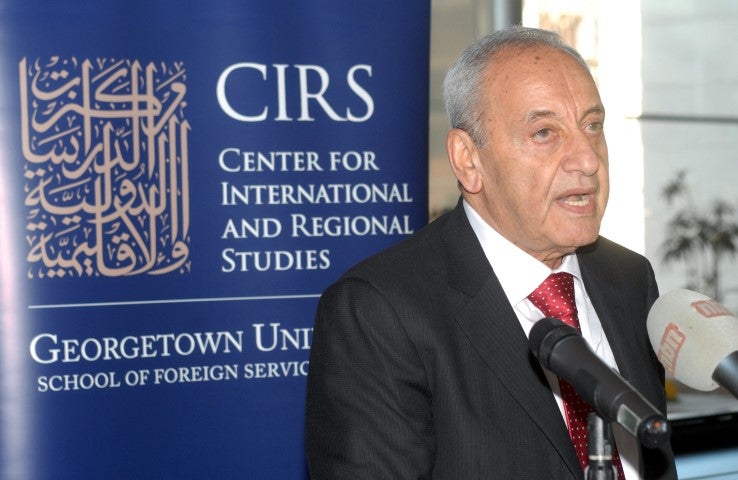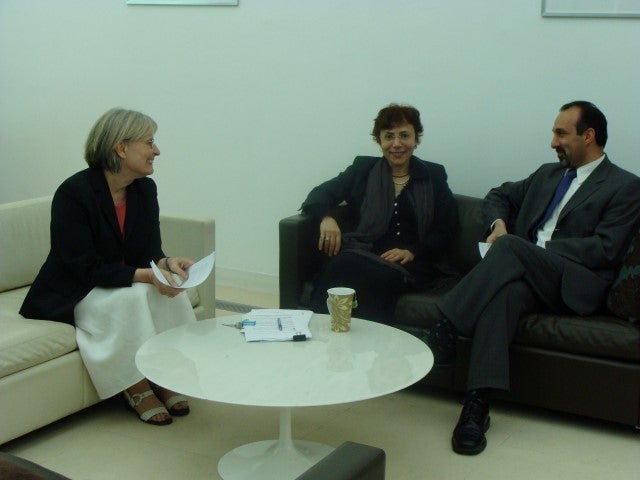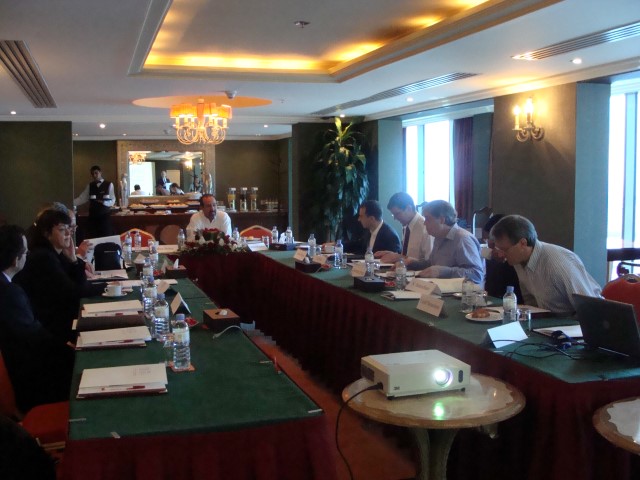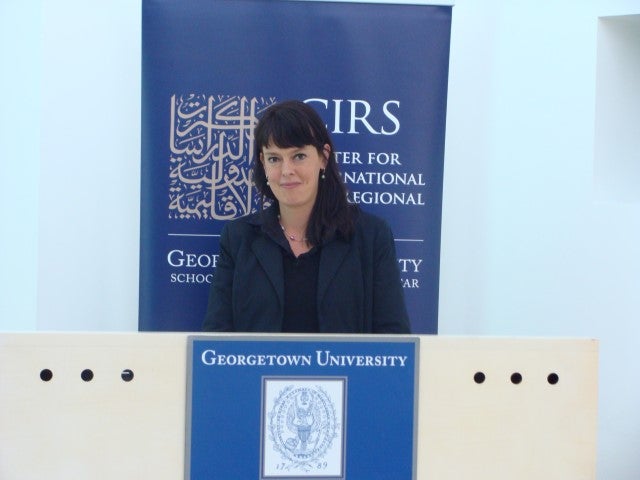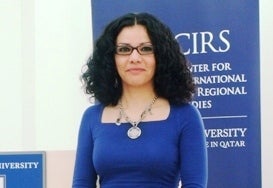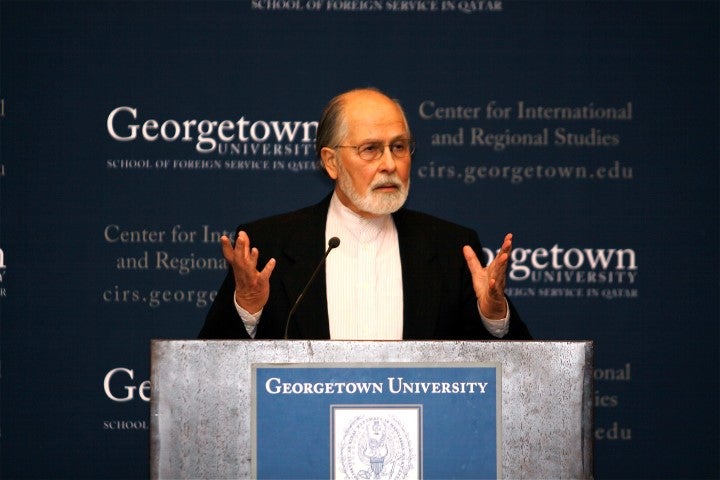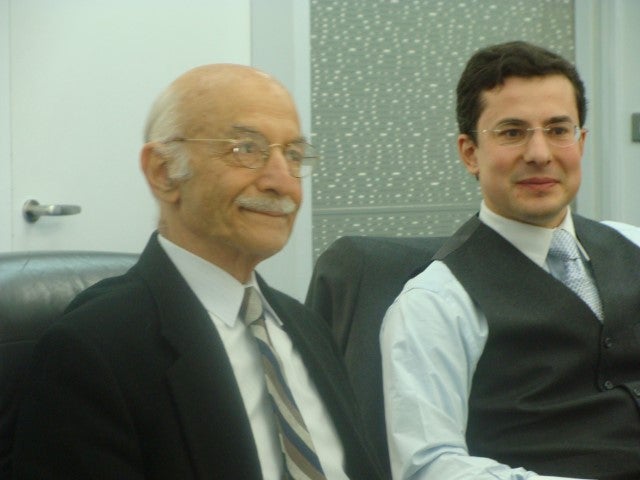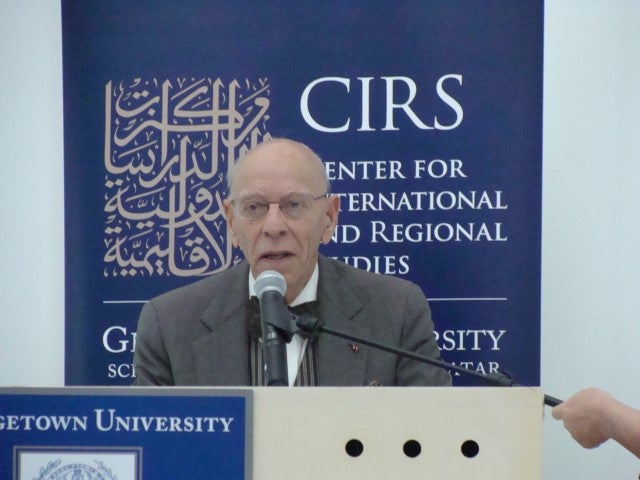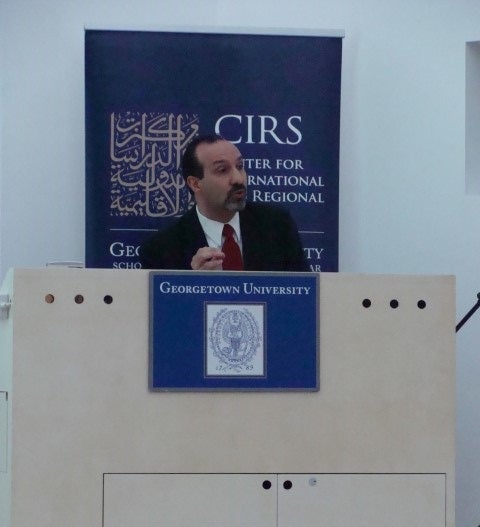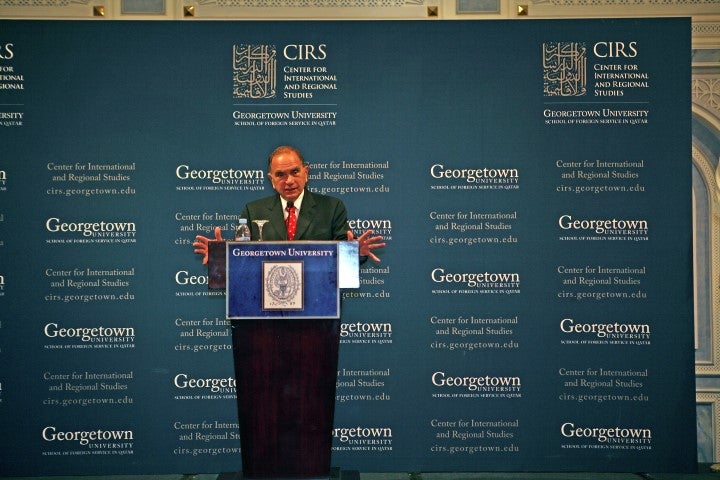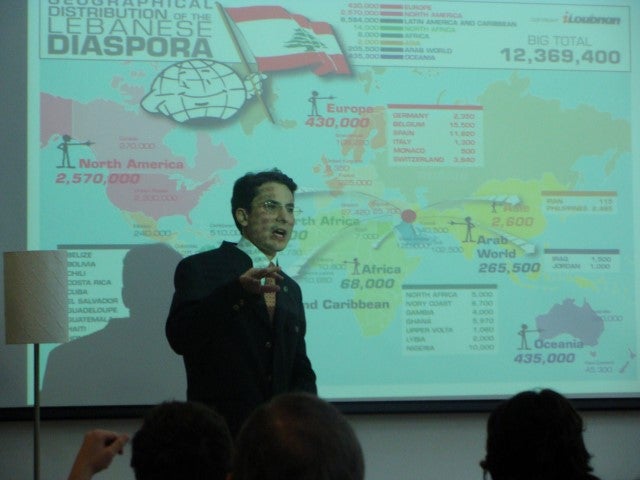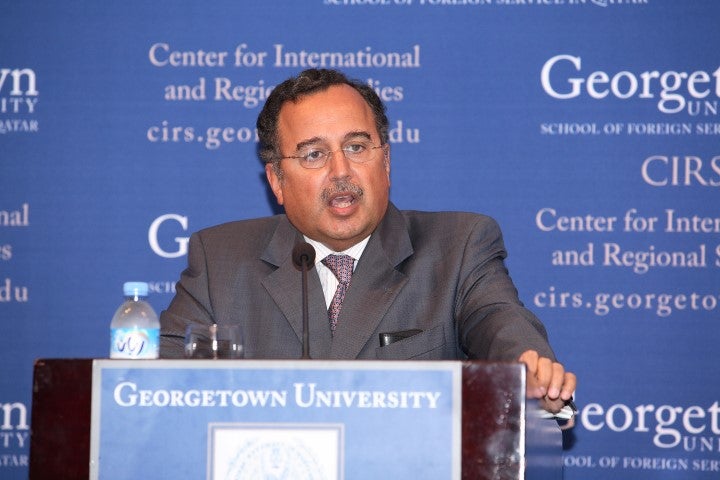Compromising Democracy: The Lebanese Example
During the concluding Q&A session, Berri recalled the great show of national unity during the 2006 Israel-Hezbollah war, drawing upon examples of supported internal migration and united Lebanese resistance. Berri also highlighted nationalist ideologies, refusing the claim of a Lebanese “positive-neutral” political approach and endorsing Lebanon’s Arab identity and commitment to the Palestinian crisis. Finally, in countering the claim that the TAIF Agreement of 1989 runs parallel to a congruent democratic Lebanon, Berri ended by retracing Lebanon’s history from the days of Fakhreddine, who celebrated the unique demographics of the country where reconciliation and harmony should prevail.
